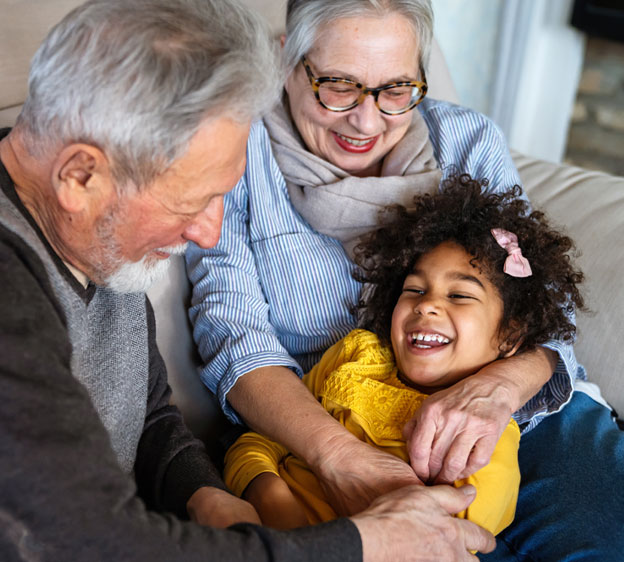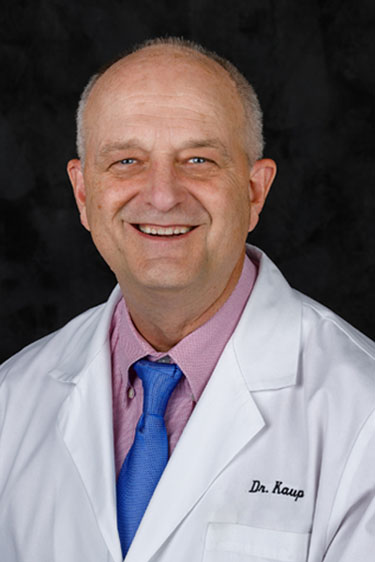
If you have kids or grandkids, you’ve probably heard about respiratory syncytial virus (RSV), a condition that can cause serious complications in infants and very young children. But don’t let your guard down. RSV in adults can be equally severe, particularly if you have chronic health conditions or are over age 65.
Understanding RSV
RSV is one of the most common illnesses seen by pediatricians and other primary care providers during fall and winter.
“Many people who have RSV don’t even know they have it,” says Dr. Michael Kaup, board-certified emergency medicine specialist at Beaufort Memorial Express Care & Occupational Health. “In most people, symptoms of RSV are similar to a mild cold and may include a runny nose, a sore throat, coughing or sneezing. But certain groups of people, including young infants (especially those born prematurely), older adults and those who have a weakened immune system, are at a higher risk of developing more serious RSV symptoms or complications from RSV.”
Read More: Flu Season? Watch Out for These 10 Other Illnesses
What RSV in Adults Looks Like
If you have a health condition, such as asthma or chronic obstructive pulmonary disease (COPD), for example, it’s common for RSV infections to cause your condition to flare up or worsen. Older adults and those with a weakened immune system (such as cancer patients) are also at a higher risk of developing complications of RSV, including inflammation of the respiratory tract and lung infections like pneumonia.
According to the Centers for Disease Control and Prevention, RSV hospitalization rates for older adults are higher this season than they were in the 2022-2023 season.
How to Protect Yourself From RSV
If you’re at a higher risk of developing severe RSV, it’s worth taking precautions to protect your health. You can’t eliminate your risk of developing this respiratory virus unless you stay completely isolated, but you can proactively lower your risk.
Many of the same health measures widely practiced during the COVID-19 pandemic can be helpful in preventing RSV in adults as well as children. Start with these habits:
- Wash your hands often. Handwashing is essential after coming in contact with others or potentially germy surfaces and objects, after using the restroom or changing a diaper, before and after cooking, and after coughing or sneezing. Using soap and water, scrub your hands, including under your nails, for at least 20 seconds before rinsing.
- Keep hand sanitizer handy. If you can’t wash your hands, use an alcohol-based hand sanitizer, rubbing a generous amount on your hands for the same 20-second timeframe.
- Avoid touching your eyes and mouth. Keep your hands away from your face to the best of your ability. Germs can easily enter your body through your eyes, nose and mouth.
- Clean and disinfect surfaces regularly. Pay special attention to the most frequently touched surfaces and objects, such as doorknobs, light switches, the remote control and your phone.
- Avoid close contact with those who are sick. If you’re at a high risk of RSV complications, spread the word to your family and friends. You will want to steer clear of anyone experiencing cold-like symptoms, which may be related to a mild case of RSV. A mild case of RSV in a loved one may not be mild when it passes to you.
- Cover your mouth and nose. Cough or sneeze into your elbow or a tissue to avoid spreading respiratory droplets, especially if you’re sick. You may also benefit from wearing a mask when you’re out in public. Using a mask to cover your mouth and nose can help limit the number of respiratory droplets making their way to you from someone who is sick.
Finally, talk to your provider about whether the RSV vaccine is right for you. The Centers for Disease Control and Prevention recommends all adults ages 75 and older and for adults age 60-74 years who are at increased risk may to get a RSV vaccine to help avoid serious complications. In clinical studies, the vaccine reduced the risk of developing RSV-associated lower respiratory tract disease by 82.6% and severe RSV-associated lower respiratory tract disease by 94.1%. Further research is being conducted into developing vaccines for young children, pregnant individuals and others at high risk.
There’s also an immunization that might help infants and some older babies avoid severe infection. The CDC recommends a monoclonal antibody called nirsevimab for all infants younger than 8 months and babies up to 19 months old who are at an increased risk of RSV. The medication may reduce infections and hospitalization by up to 80%.
Think you might have RSV or another respiratory illness? Visit a Beaufort Memorial Express Care & Occupational Health clinic for quick evaluation.

